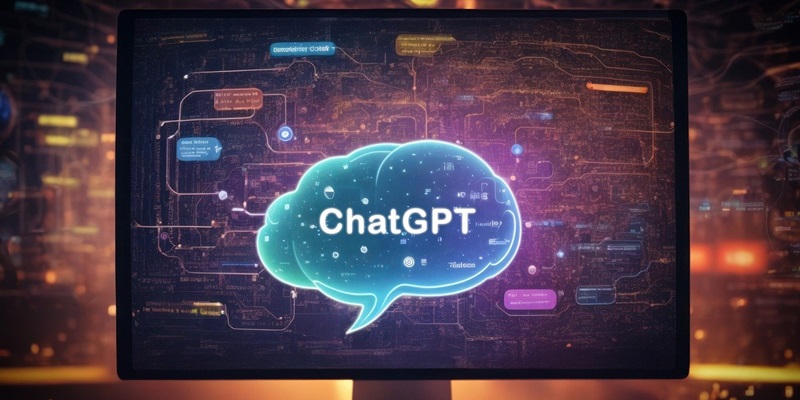In today’s fast-paced digital world, businesses are constantly seeking ways to enhance their marketing automation strategies. One breakthrough technology that is revolutionizing the field is ChatGPT. With its unique capabilities, ChatGPT is playing a key role in providing personalized customer experiences and automating various marketing tasks. Moreover, its impact is not limited to individual businesses, as it has the potential to transform the entire marketing landscape and drive innovation in marketing automation.
Personalized Customer Experiences
In order to stand out in a crowded marketplace, businesses need to create personalized experiences for each customer. ChatGPT is a game-changer in this aspect, capable of providing personalized responses that match the unique needs and preferences of customers. By analyzing customer data and understanding their behavior, ChatGPT can deliver tailored recommendations, suggestions, and solutions, resulting in highly engaging conversations.
Providing Personalized Responses
ChatGPT’s advanced natural language processing abilities enable it to understand and interpret customer queries effectively. It can generate personalized responses, addressing individual concerns and offering relevant information, making customers feel heard and valued. By seamlessly integrating ChatGPT into their marketing automation systems, businesses can enhance customer interactions by automating communication while still maintaining a human touch. This ensures that customers have a consistent, interactive, and satisfying experience across various touchpoints.
Automation with a Human Touch
Automating customer interactions doesn’t equate to impersonal experiences. ChatGPT enables businesses to automate their customer service and support processes while simulating human-like interactions. This combination of automation and personalization sets the stage for exceptional customer experiences.
Automating Customer Interactions
ChatGPT becomes an invaluable tool in marketing automation strategies as it can handle a high volume of customer inquiries and requests without human intervention. This frees up valuable time and resources for businesses, allowing them to focus on core operations while still providing prompt and efficient customer support.
Maintaining a Human Touch
Despite its automated nature, ChatGPT is designed to replicate human conversation patterns, making interactions more engaging and personalized. Its ability to understand context, humor, and complex language nuances helps maintain a human touch, leaving customers with a positive impression of the brand.
Automating Marketing Tasks
ChatGPT’s capabilities extend beyond customer interactions, enabling businesses to automate various marketing tasks and streamline their operations.
Lead Generation
ChatGPT can assist businesses in generating leads by engaging website visitors and collecting relevant information. By initiating conversations, understanding customer needs, and qualifying leads, ChatGPT accelerates the lead generation process and contributes to a more efficient marketing funnel.
Customer Support
ChatGPT can also automate customer support processes, handling frequently asked questions, troubleshooting, and providing detailed information about products or services. This speeds up response times, reduces customer wait times, and enhances overall customer satisfaction.
Content Creation
Creating engaging content is essential for marketing success. ChatGPT can automate content creation by generating blog posts, product descriptions, social media captions, and email newsletters. By leveraging ChatGPT’s language generation capabilities, businesses can produce high-quality, relevant content at scale, saving time and resources.
Optimizing Campaigns
Efficient marketing campaigns are critical for business growth, and ChatGPT plays a vital role in optimizing and refining these campaigns for maximum impact.
Using ChatGPT to Refine Campaigns
By analyzing customer data and feedback, ChatGPT can provide insights and suggestions for campaign improvements. It can identify trends, preferences, and potential target segments, helping marketers tailor their strategies and messaging accordingly.
With ChatGPT’s assistance, marketers can refine their campaigns, aligning them more accurately with customer expectations. This optimization leads to higher conversion rates, increased customer engagement, and ultimately a better return on investment.
Maximizing Marketing Efforts
ChatGPT’s ability to automate marketing tasks and provide personalized experiences allows businesses to scale their marketing efforts. By automating routine processes, marketers can focus on strategic initiatives and explore innovative approaches to engage their audience more effectively. The introduction of ChatGPT has the potential to transform the entire marketing industry and reshape customer expectations and behaviours.
Transforming the Marketing Industry
As businesses widely adopt ChatGPT, we can expect a paradigm shift in marketing practices. The automation and personalization provided by ChatGPT will become the new standard, forcing businesses to adapt to the changing landscape to remain competitive.
Shifting Customer Expectations and Behavior
As customers experience highly personalized interactions with ChatGPT, their expectations regarding brands and their engagement strategies will evolve. They will begin to demand and anticipate exceptional personalized experiences across all touchpoints, raising the bar for businesses to consistently deliver.
Driving Innovation in Marketing Automation
ChatGPT’s influence is pushing businesses to explore new frontiers and stay ahead of their competitors by driving innovation in marketing automation. With the widespread adoption of ChatGPT, businesses are embracing the power of AI-driven marketing automation. As more companies integrate ChatGPT into their systems, it will become a cornerstone of their marketing strategies.
Exploring New Ways to Engage Customers
ChatGPT’s capabilities challenge businesses to think creatively and find novel ways to engage their customers. By leveraging ChatGPT’s personalized responses and automated processes, marketers can experiment with different approaches to captivate and connect with their target audience. To remain competitive, brands must continuously innovate and adapt. ChatGPT’s capabilities empower marketers to stay ahead of the competition by delivering exceptional customer experiences, maximizing efficiency, and leveraging data-driven insights.
In conclusion, ChatGPT’s role in marketing automation is indisputable. By providing personalized customer experiences, automating tasks, optimizing campaigns, and driving innovation, ChatGPT is revolutionizing how businesses engage with customers. As more businesses adopt ChatGPT and leverage its capabilities, the marketing landscape will evolve, leading to enhanced customer expectations, improved efficiency, and a constant drive for innovation in marketing automation. Embracing ChatGPT is not just a trend; it’s a strategic imperative for businesses aiming to excel in the digital age.

